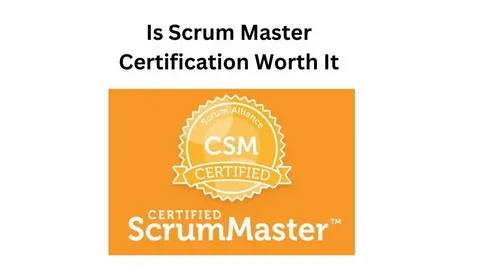Every year, new certifications flood the professional world, and most of us are left wondering which ones are actually worth our time and money. Among these, the Certified Scrum Master Certification has managed to stay relevant for over a decade. But in 2025, with so many changes in the way businesses run AI-powered tools, hybrid work, and digital-first strategies—the big question is: does CSM still hold its ground?
For many professionals, this isn’t just about adding a line to the résumé. It’s about making sure the time, effort, and money they invest in certification bring real returns in terms of career growth and opportunities. Let’s take a closer look at whether CSM still earns its keep today.
See Also: The Ultimate Guide to the EdgeTV App
The Rising Demand for Scrum Masters
If you’ve been keeping an eye on job boards or LinkedIn, you’ll notice that the demand for Scrum Masters hasn’t slowed down. In fact, companies in IT, healthcare, finance, and even government projects are actively looking for professionals who can lead Agile teams. Why? Because businesses don’t just want faster project delivery—they want adaptability. A Scrum Master ensures teams stay on track, address challenges quickly, and focus on delivering value. And in a world where market shifts happen overnight, that role becomes invaluable.
Nobody asks for “Agile knowledge” these days. People demand a demonstration that you are able to lead team members across practical problems. That is precisely what distinguishes Certified Scrum Master Certification—it proves that you are competent to deliver structure and agility.
Why Professionals Choose Certified Scrum Master Certification
Recognition and Credibility
The Scrum Alliance CSM certification is globally respected, and that immediately carries weight with recruiters and hiring managers. It shows that you are more than a student of the Agile buzz terms but have a systematic approach to Scrum practice.
Career Advancement
For others, certification has been a stepping stone towards leadership. Scrum Masters tend to transition to roles such as Product Owner, Program Manager, or even Agile Coach. You see, certification isn’t merely a means for gaining a job; it’s a means for gaining new opportunities as your career progresses.
Salary Benefits
Figures never lie. Survey after survey proves that Scrum Masters who are certified earn higher salaries than those who are uncertified. On average, that amounts to 15–20% higher per country. Now that organizational strategy has Agile at its heart, that gap isn’t going away anytime soon.
Practical Skill Application
One reason professionals enjoy the certification is that it’s not all theory. Training sessions include exercises, role plays, and case studies. You walk away with tools you can apply immediately—whether it’s running sprint planning, coaching a team through challenges, or improving backlog management.
Real-World Relevance of Certification
The real test of any certification is its impact in the job market. Take, for example, the growing demand for CSM Certification in Atlanta. The city has turned into a magnet for tech companies and startups, and these organizations want professionals who can hit the ground running with Agile. Job listings frequently highlight CSM as either a preference or a requirement, proving its relevance in hiring decisions.
And this trend isn’t limited to Atlanta. Across major global hubs—New York, London, Toronto, Bangalore—you’ll find the same story. Employers see value in hiring certified Scrum Masters because they know these professionals come with both foundational skills and a mindset geared toward collaboration and continuous improvement.
The Future Value of CSM Beyond 2025
Looking ahead, the way we work will keep evolving. AI will take over routine tasks, hybrid teams will become the default, and organizations will face constant pressure to innovate. But here’s the thing: no technology can replace the human ability to guide, mentor, and align a team toward a shared goal. There’s also the added benefit of community. Scrum Alliance connects certified professionals with events, forums, and peer networks. This isn’t just about having three letters on your résumé—it’s about being part of a global learning ecosystem that helps you keep pace with industry changes.
Conclusion
So, is the Certified Scrum Master Certification worth it in 2025? The short answer is yes. It continues to deliver real benefits—recognition, career progression, and higher earning



